On This Date in Sports March 1, 1980: After the Miracle
In collaboration with the Sportsecyclopedia.com
Six days after completing the miracle and winning the Gold Medal with Team USA, Jim Craig makes his NHL debut with the Atlanta Flames. Craig allows just one goal on 25 shots as the Flames beat the Colorado Rockies 4-1 at the Omni in Atlanta. Jim Craig is of 13 members of the team to play in the NHL after the 1980 Lake Placid Olympics.
The Miracle on Ice was a transformative moment in the United States. It was voted the greatest moment in sports in the 20th Century. It came at a time in which spirits in the United States were low, and it helped usher in a new generation of hockey fans that is still growing today. The Miracle on Ice spawned a movie that perfectly captured the team, but of the 21 players on the team what would become of them following the games.
Jim Craig’s debut was headline news, as he tried to help attendance for the struggling Atlanta Flames. He would appear on the cover of Sports Illustrated after his first game, but his NHL career was hardly notable. Craig would appear in just three more games without a win as the Flames moved to Calgary following the season. Jim Craig meanwhile was traded to the Boston Bruins, where he played 23 games in the 1980/81 season. He later spent time with the Minnesota North Stars, appearing in just 30 games for his career.
One of the eight players to not reach the NHL was captain Mike Eruzione, who retired following the games. He was not drafted by an NHL team, though he did get offers from the New England Whalers who were still in the WHA. Despite an offer from the New York Rangers, who were later coached by Herb Brooks, Eruzione chose to begin a career as an announcer working for the USA Network in its NHL coverage.
Defenseman Bill Baker joined the Montreal Canadiens after the games and bounced around the NHL for the next four years, spending time with the Colorado Rockies, St. Louis Blues, and New York Rangers where he was reunited with Coach Brooks.
Center Neal Broten had the longest career of any of the members of the 1980 Olympic team, as he played in the NHL for 17 years. Most of his career was spent with the Minnesota North Stars, later becoming the Dallas Stars. Along the way, he played in two All-Star Games In 1995, Broten was traded to the New Jersey Devils and was part of the team that won the Stanley Cup. Broten finished his NHL career with the Los Angeles two years later.

Advertisement
Winger Dave Christian also had a lengthy NHL career, playing 13 seasons, with the Winnipeg Jets, Washington Capitals, Boston Bruins, St. Louis Blues and Chicago Blackhawks. He appeared in one All-Star Game.
Center Steve Christoff played along with Broten on the North Stars and later played with the Calgary Flames and Los Angeles Kings, but appeared in just 77 games before retiring in 1984.
Center Mark Johnson, who is currently the coach of the University of Wisconsin Women’s Team, played ten seasons in the NHL. His career began with the Pittsburgh Penguins shortly after the Olympics; he later went on to play with the Hartford Whalers, St. Louis Blues and the New Jersey Devils. In his final season, he was a teammate of Vyacheslav Fetisov, a member of the Soviet team in 1980.
Winger Rob McLanahan played five seasons in the NHL, joining the Buffalo Sabres after Lake Placid. He later spent time with the Hartford Whalers and New York Rangers.
Defenseman Jack O’Calahan would spend two years in the minors before making his NHL debut with the Chicago Blackhawks. He would later join Mark Johnson on the Devils before ending his career in 1989.
Center Mark Pavelich was another player to join Herb Brooks on the Rangers, he spent five seasons, before spending time with the Minnesota North Stars. He later spent time in Europe, before appearing in two games for the San Jose Sharks in their inaugural season.
Defenseman Mike Ramsey also played 17 seasons. A bulk of his career was spent with the Buffalo Sabres, with whom he spent 14 seasons, before spending time with the Pittsburgh Penguins and Detroit Red Wings.
Winger Dave Silk also played for Brooks when he coached the Rangers. He later spent time with the Bruins, Red Wings and Winnipeg Jets before finishing his career in Europe.
Defenseman Ken Morrow joined the New York Islanders following Lake Placid. Three months after celebrating the Gold Medal, he got to lift the Stanly Cup. Morrow would spend ten seasons with the Islanders, winning the Stanley Cup four times.

Advertisement
Seven other men on the Olympic team did not have NHL careers. They include Buzz Schneider, who appeared for Team USA in the 1976 Olympics and John Harrington, who played on the 1984 Olympic Team. Also not playing in the NHL were Steve Janaszak, Eric Strobel, Bob Suter, Phil Verchota, and Mark Wells.
Herb Brooks would take over as coach of the New York Rangers in 1981. He spent four seasons behind the Rangers’ bench, where he reunited with Bill Baker, Rob McLanahan, Mark Pavelich, and Dave Silk. At the time, the Rangers General Manager was Craig Patrick, who served as his assistant in 1980. Brooks later would coach the Minnesota North Stars and New Jersey Devils. Brooks sadly passed away in 2003, after a car accident.
Craig Patrick was a third-generation coach with the Rangers, a post that was first held by his Grandfather Lester and his father, Lynn. When Herb Brooks was fired, Patrick stepped out of the front office and served as an interim coach. He later served as General Manager of the Penguins, winning two Stanley Cups.
